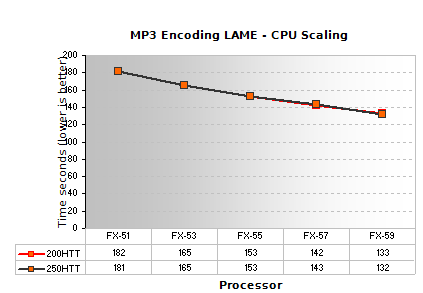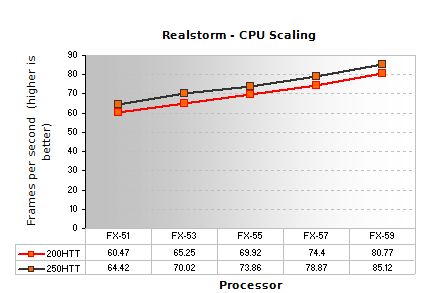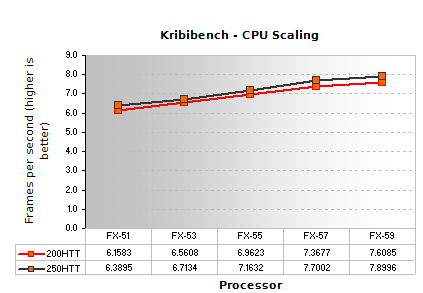CPU Benchmarks
MP3 Encoding using LAME 3.92MMX

Being bound to CPU frequency doesn't have our MP3 encoding test changing its performance when the memory subsystem gets a boost. Neither memory bandwidth or memory latency affect things, rather internal cache latencies are the determining factors in performance. Further, while you can measure a cache bandwidth boost, it's not affecting LAME performance too much either way. Overall, we don't gain anything in this test.
Realstorm 2004
Realstorm is a heavily CPU bound test that's also observant of memory subsystem differences. It should enjoy the extra memory bandwidth and reduced access latency, along with the jumps in CPU frequency.
Performance scales linearly and at the FX-59 data point, there's a 6% increase in performance to be had just from the memory subsystem performance increases. Performance for free, just by bumping the memory clock.
Kribibench v1.1
Kribi is less memory subsystem-aware, responding less to changes there than Realstorm does.
Around 4% is to be gained just from the change to 250MHz memory clock and dHTT in this test. It's not as impressive as the theoretical difference, but it's to be had nonetheless.
It somewhat mirrors the impressive-on-paper, but less so in real testing, results that you get with recent 1066MHz bus Pentium 4s. With Intel choosing a larger L2 cache as the route to more performance in coming months, could a bus and memory speed hike, and a cache size increase, be part of AMD's plans for future processors?









